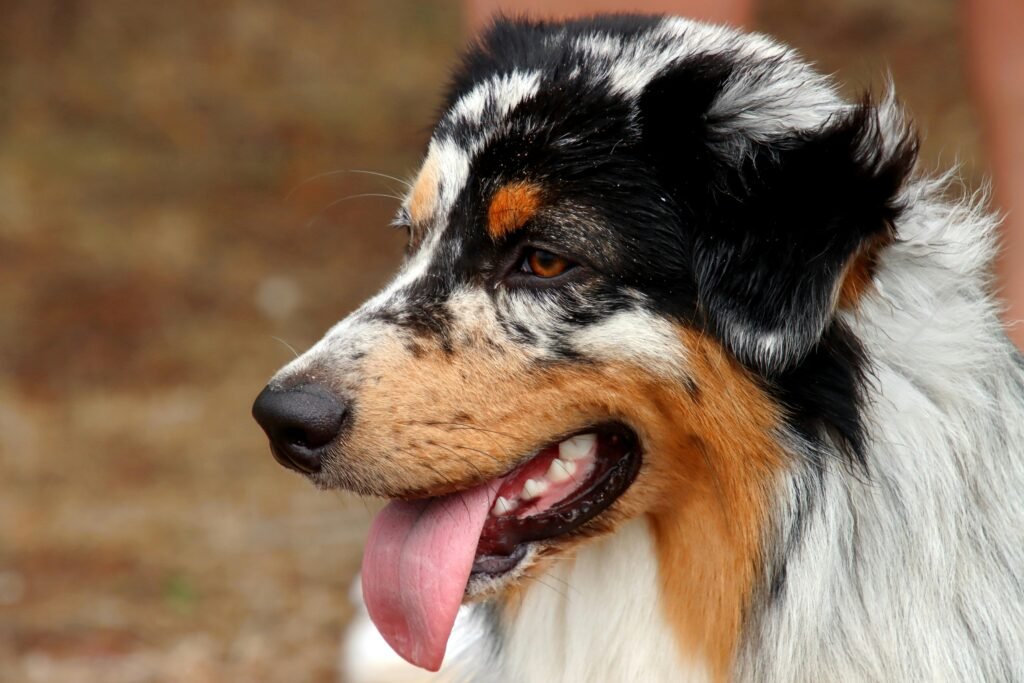Australian Shepherd Dog Breed
The Australian Shepherd, commonly known as the "Aussie," is an energetic, intelligent, and versatile herding dog known for its agility, work ethic, and friendly nature. Despite its name, this breed was developed in the United States and has become a favorite among active families, ranchers, and dog sport enthusiasts.
1. HISTORY OF THE AUSTRALIAN SHEPHERD
The Australian Shepherd’s origins are tied to the Basque shepherds who traveled to the United States via Australia in the 19th century, bringing with them their sheep and dogs. Although the breed is called the Australian Shepherd, it was refined and developed in the United States to herd livestock on ranches. The Aussie quickly gained popularity among ranchers and farmers due to its strong work ethic, intelligence, and versatility. Today, the breed excels in a variety of roles, from herding to dog sports and therapy work.
2. APPEARANCE
The Australian Shepherd is a medium-sized, athletic dog with a strong, balanced build. Males typically stand between 20 to 23 inches tall and weigh 50 to 65 pounds, while females are slightly smaller, standing between 18 to 21 inches and weighing 40 to 55 pounds. Their coat is medium-length, weather-resistant, and can be straight or wavy, coming in a variety of colors including blue merle, red merle, black, and red, often with white and tan markings.
One of the breed’s most striking features is its bright, expressive eyes, which can be brown, blue, amber, or a combination of these colors. Some Australian Shepherds even have “split” eyes, with each eye being a different color. Their tails are naturally bobbed or docked short, giving them a distinctive appearance.
3. Personality and Temperament
Australian Shepherds are known for their intelligence, loyalty, and high energy levels. They thrive when given a job to do and are happiest when they have both mental and physical tasks to occupy their time. Aussies are highly trainable and excel in obedience, agility, herding trials, and other dog sports. Their intelligence and eagerness to please make them quick learners, though they can be independent and may require consistent training.
Aussies are affectionate and form strong bonds with their families, making them excellent companions. They are also known for being protective and alert, often acting as natural watchdogs without being overly aggressive. However, their herding instincts can sometimes lead them to try and “herd” children, animals, or even adults, so early training and socialization are essential to curb this behavior.

4. Care and Grooming
The Australian Shepherd’s coat requires regular grooming to keep it in good condition. Brushing several times a week will help prevent mats and tangles, especially during shedding seasons in the spring and fall when Aussies “blow” their coat. Regular grooming also helps reduce shedding and keeps their fur looking shiny and healthy.
Due to their high energy levels, Australian Shepherds need plenty of daily exercise to stay happy and healthy. They enjoy activities such as long walks, hikes, and games like fetch. Aussies also excel in dog sports like agility, flyball, and herding trials, which can provide both physical exercise and mental stimulation. Without proper exercise, Aussies can become bored and develop destructive behaviors.
In addition to physical exercise, mental stimulation is important for this intelligent breed. Puzzle toys, obedience training, and interactive play are all great ways to engage their minds.
5. Health Considerations
Australian Shepherds are generally healthy dogs, but like all breeds, they can be prone to certain health conditions. Some common health concerns in Aussies include:
- Hip Dysplasia: A genetic condition that can affect mobility.
- Elbow Dysplasia: Another joint-related issue that can cause pain and discomfort.
- Progressive Retinal Atrophy (PRA): A degenerative eye disease that can lead to blindness.
- Epilepsy: Some Aussies are prone to seizures.
- Deafness: Merle-colored Aussies may be more susceptible to deafness.
Regular veterinary care, a balanced diet, and an active lifestyle can help ensure your Australian Shepherd stays healthy and happy.
6. Australian Shepherd as a Family Pet
Australian Shepherds are excellent family pets for active households. Their loyalty, affection, and intelligence make them wonderful companions for families, and they are great with children when properly trained and socialized. However, due to their high energy levels and herding instincts, they do best in homes where they have plenty of space to run and play.
Aussies thrive in environments where they are given plenty of attention and tasks to keep them busy. They are not well-suited for apartment living unless they receive significant daily exercise and mental stimulation. They also tend to bond closely with their owners and do best when they are part of the family’s daily activities.

7. Is the Australian Shepherd Right for You?
If you’re looking for a loyal, energetic, and intelligent companion that thrives on activity and mental stimulation, the Australian Shepherd may be the perfect breed for you. Aussies are well-suited for active individuals or families who enjoy spending time outdoors and are willing to invest in regular training and exercise.
However, potential owners should be prepared for the breed’s high energy levels and need for mental stimulation. Without enough activity and engagement, Australian Shepherds can become bored and exhibit undesirable behaviors. For those who can meet their needs, the Australian Shepherd will reward you with years of companionship, loyalty, and enthusiasm.

